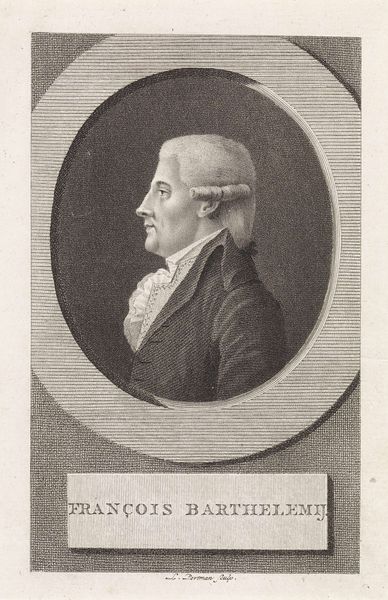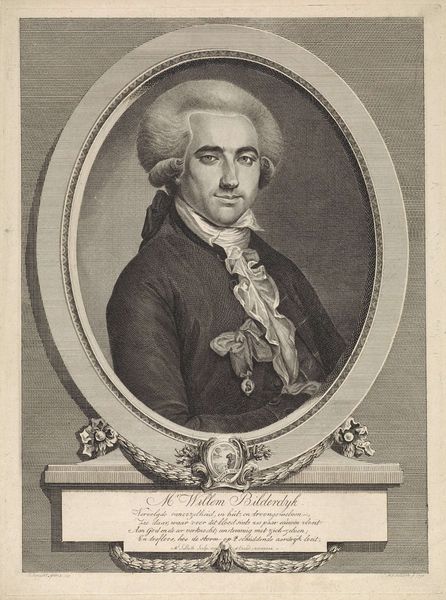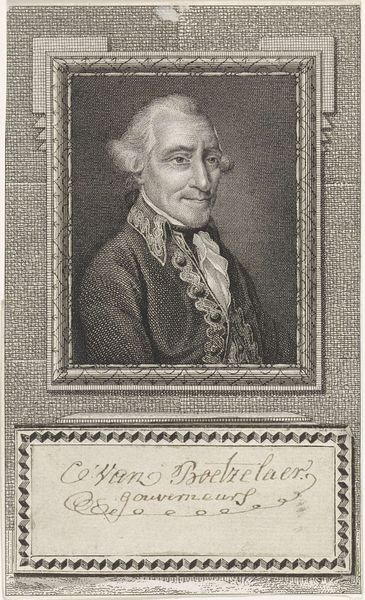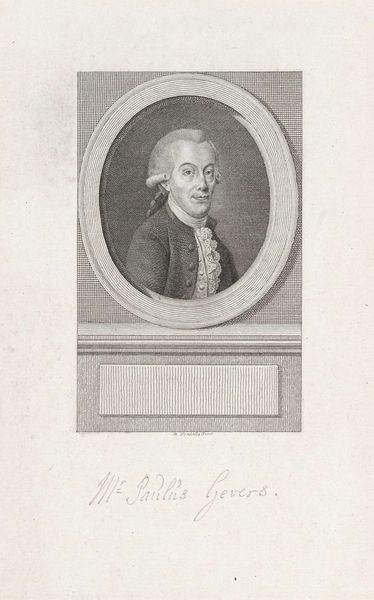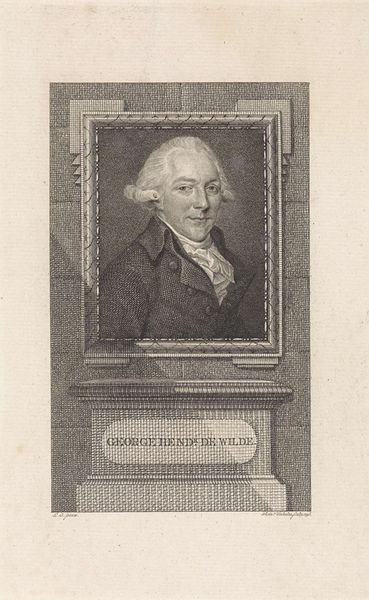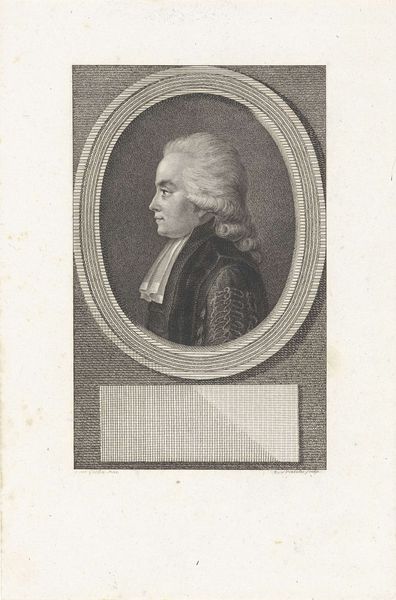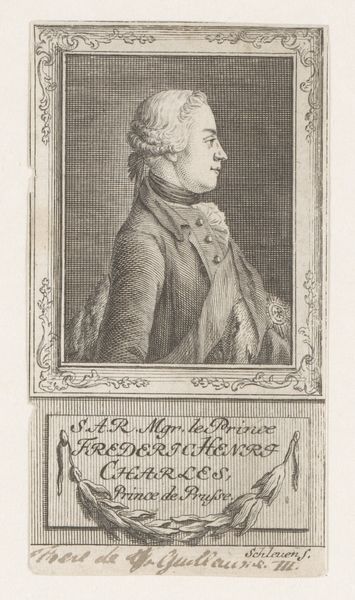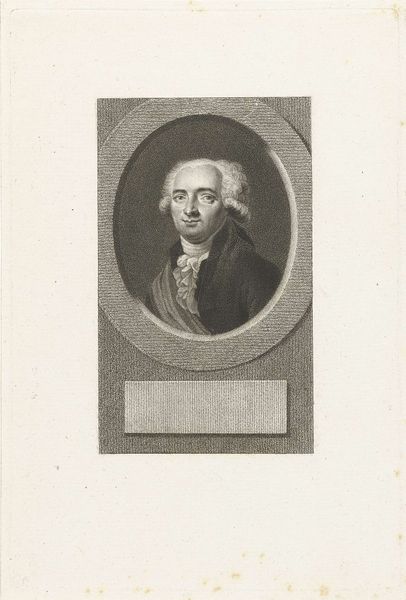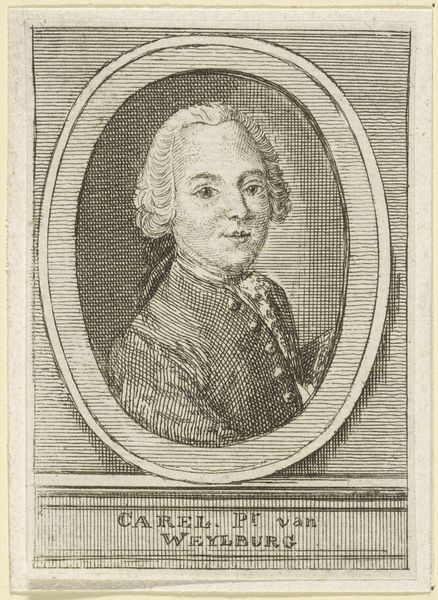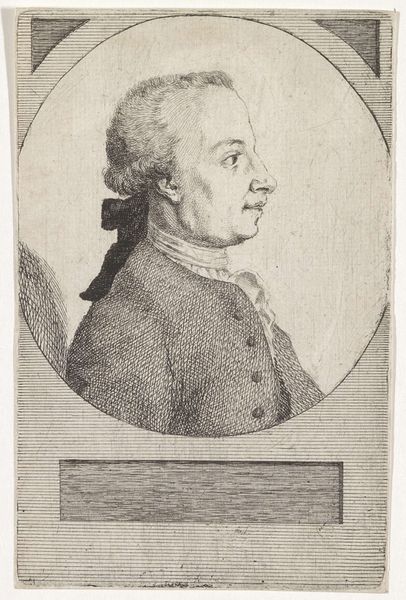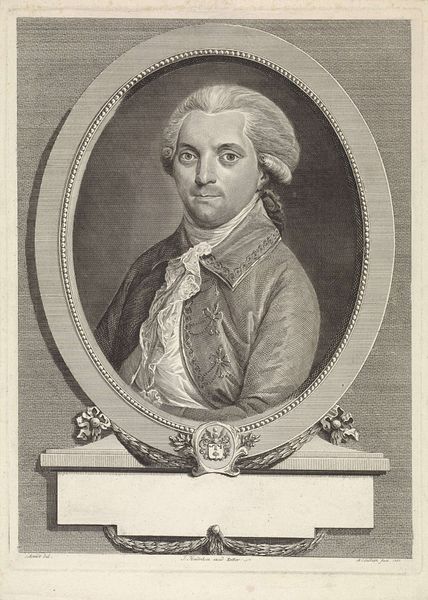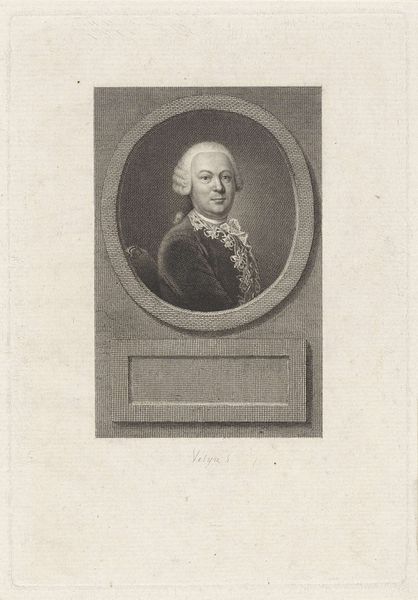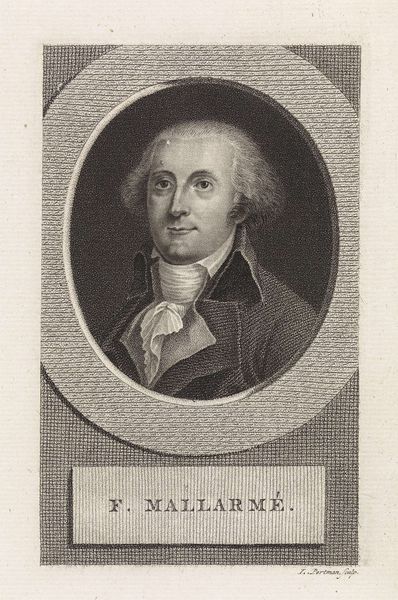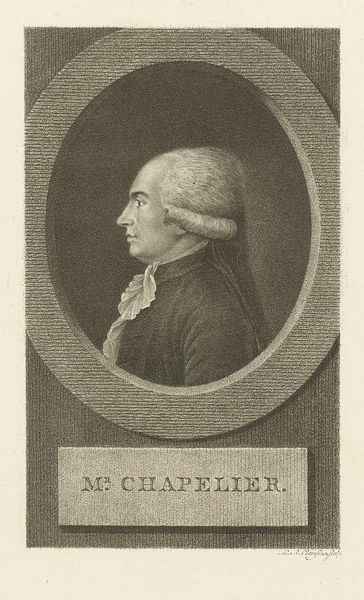
engraving
#
portrait
#
neoclacissism
#
old engraving style
#
19th century
#
history-painting
#
engraving
Dimensions: height 147 mm, width 89 mm
Copyright: Rijks Museum: Open Domain
This is Reinier Vinkeles's portrait of Jan de Witt, made with engraving techniques. Engraving is an intaglio process, meaning that the image is incised into a surface, here a metal plate, and the incised lines hold the ink. Look closely and you'll see how the sharpness of the engraved lines defines every element of the portrait, from the intricate details of De Witt's jacket to the texture of his powdered wig. The act of engraving demands precision and control; the artist uses a tool called a burin to carve lines into the metal, creating a permanent record of their skill. The controlled lines create fine details, and capture the likeness and character of the sitter. This medium was perfectly suited to the era's taste for detailed and representational imagery, also reflecting the rise of print culture and wider accessibility of art. Ultimately, recognizing the artistry behind the precise craftsmanship invites us to consider the broader cultural and social context in which this portrait was created.
Comments
No comments
Be the first to comment and join the conversation on the ultimate creative platform.
